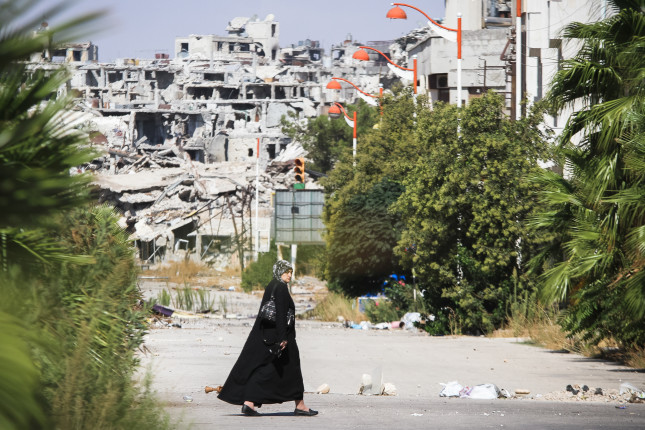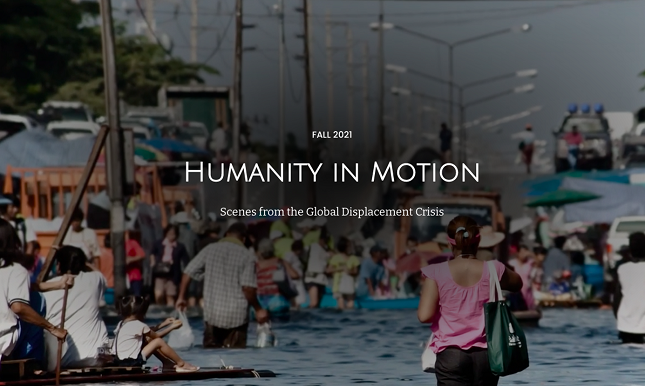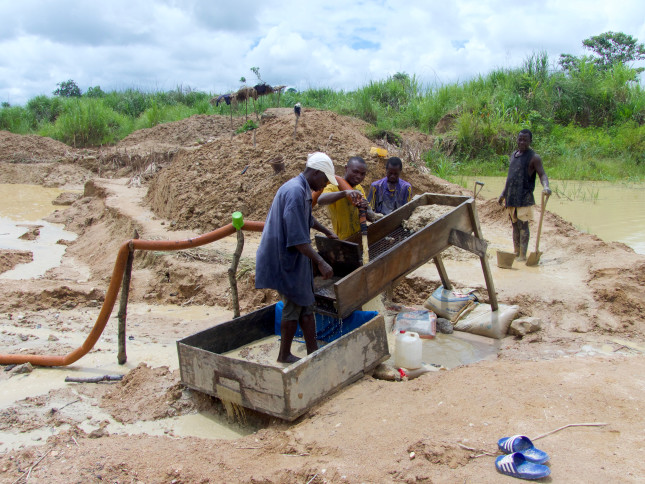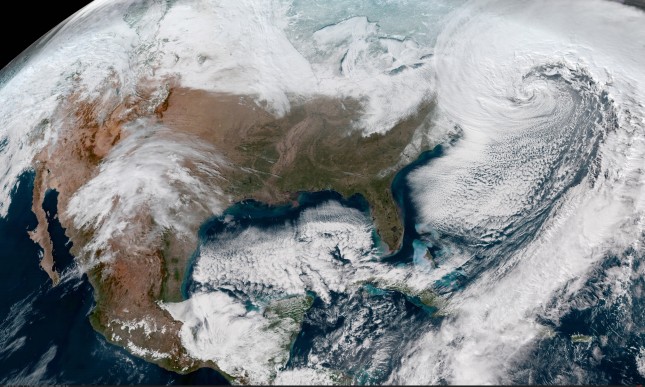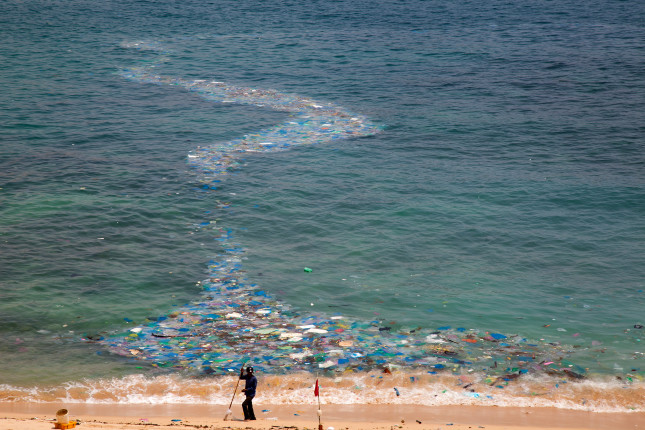-
The Fight for Climate After COVID-19: A Conversation With Sherri Goodman and Author, Alice Hill
› The impacts of COVID-19 have shown policymakers that we need to invest in infrastructure and shore up existing systems to ensure that they can withstand changing conditions over time, says Alice Hill, former special assistant to President Barack Obama and current senior fellow at the Council on Foreign Resilience, in this week’s New Security Broadcast. “As we go forward, we need to have resilient systems. But we haven’t done that yet, we’re unprepared.” Hill sat down with Sherri Goodman, Senior Fellow at the Wilson Center’s Environmental Change and Security Program and former U.S. Deputy Undersecretary of Defense, to her new book, The Fight for Climate After COVID-19, and how the response to COVID-19 can inform approaches to building climate resilience.
The impacts of COVID-19 have shown policymakers that we need to invest in infrastructure and shore up existing systems to ensure that they can withstand changing conditions over time, says Alice Hill, former special assistant to President Barack Obama and current senior fellow at the Council on Foreign Resilience, in this week’s New Security Broadcast. “As we go forward, we need to have resilient systems. But we haven’t done that yet, we’re unprepared.” Hill sat down with Sherri Goodman, Senior Fellow at the Wilson Center’s Environmental Change and Security Program and former U.S. Deputy Undersecretary of Defense, to her new book, The Fight for Climate After COVID-19, and how the response to COVID-19 can inform approaches to building climate resilience. -
Integrating Environmental Protection and Conflict Prevention: Risk, Resilience, and Community Solutions
›“The world’s least resilient countries—when faced with ecological stress—are more likely to face civil unrest, political instability, social fragmentation, and economic collapse,” said Cynthia Brady, ECSP Global Fellow and Senior Advisor, at an event hosted by the Alliance for Peacebuilding. These “vulnerabilities are clearly mutually reinforcing, but some of the solutions are mutually reinforcing too,” said Brady. The critical challenge now is to bridge the gap between traditionally siloed communities of practice in conflict prevention and conservation.
-
New Wilson Quarterly Features Expert Insights on Climate Migration
›
“Supporting the talents and potential of the refugees of today could lead to empowering the scientists, leaders, and innovators of the future. Instead of a lost generation, we have the opportunity to build a thriving generation full of promise,” says Abdullah II Ibn Al Hussein, King of the Hashemite Kingdom of Jordan, in the forward of the Fall Wilson Quarterly (WQ), “Humanity in Motion: Scenes from the Global Displacement Crisis.”
-
Hitting the Brakes on Plastics in China’s Food Delivery Industry: Q&A with Zheng Xue and Sherry Lu of Plastic Free China
›China Environment Forum // Q&A // November 4, 2021 // By Solange Reppas, Mingwei Zhu, Tongxin Zhu & McKenna PotterIn every Chinese city, there is an army of motorcycles and mopeds weaving through the traffic jams, and sometimes even venturing on sidewalks, to deliver millions of food and e-commerce orders each day. Meituan, one of China’s most popular food delivery apps, delivers 30 million orders a day, serving up 100 million plastic containers. According to Greenpeace, e-commerce and express delivery in China generated 9.4 million tons of packaging waste in 2018 and will likely triple to 41.3 million tons by 2025. -
Can COP26 Meet the Climate and Conflict Challenge?
›
Global climate action must be sensitive to ‘land grabs’ and lost livelihoods for both a safer and greener world to be built in Glasgow.
With all eyes on COP26, the world is holding its breath. This year’s negotiations will need to see truly ambitious commitments to ramp up climate action in order to avoid a dangerous future. There has never been a greater sense of the urgency in the climate movement.
As a peacebuilder, I’m looking closely at what the implications of the much-needed pledges might be for the 1.5 billion people living in fragile and conflict-affected contexts. The discussion on the impact of climate change on security and social stability is gaining momentum but is still effectively on the fringes of the COP26 agenda. That is a concern.
-
The Biden-Harris Administration Releases a (Nearly) Whole-of-Government Response to Climate Security
›October 29, 2021 // By Lauren Herzer RisiLast week, in an unprecedented show of coordination to address the connections between climate change and security, the Biden-Harris Administration released four reports—which taken together, mark significant progress in the effort to center climate change in U.S. national security and foreign policy. The documents—which fulfill key requirements laid out in two Executive Orders issued by President Biden in the early days of his administration—describe how climate change will increasingly heighten instability and influence the United States’ strategic interests, including shaping competition with other great powers—most significantly, China.
-
Developing Data-Driven Solutions to Vietnam’s Ocean Plastics Problem
›
In December 2020, Vietnam’s Prime Minister Nguyễn Xuân Phúc signed the country’s National Action Plan for Management of Marine Plastic, setting an ambitious goal for the government to reduce marine plastic litter by 75 percent by 2030. Recent surveys indicate that plastics are the most prevalent and dangerous form of waste choking Vietnam’s beaches and waterways. Whether polystyrene, discarded nets, or mismanaged single-use plastics, these items are not just an eyesore, but they imperil the local ecosystem and fishing industry in Vietnam.
-
Climate Crisis Exacerbates Military Legacy Contamination
›
This summer, climate-induced heat waves ignited landmines and unexploded ordnance buried in the soils around the Middle East, killing people and causing wildfires. Warmer waters are speeding up erosion of sunken battleships laden with degrading munitions. A melting ice sheet on Greenland has exposed thousands of barrels of toxic waste at abandoned U.S. military bases.
Showing posts from category environmental security.


